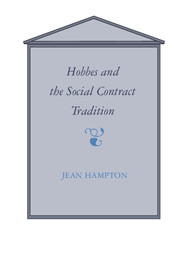Book contents
- Frontmatter
- Contents
- Acknowledgments
- A note on texts and references
- Introduction
- 1 “Of Man”: the foundation of Hobbes's political argument
- 2 What is the cause of conflict in the state of nature?
- 3 The shortsightedness account of conflict and the laws of nature
- 4 The argument for absolute sovereignty
- 5 Authorizing the sovereign
- 6 Hobbes's social contract
- 7 The failure of Hobbes's social contract argument
- 8 Can Hobbes's argument be salvaged?
- 9 How the traditional social contract argument works
- Bibliography
- Index
8 - Can Hobbes's argument be salvaged?
Published online by Cambridge University Press: 05 June 2012
- Frontmatter
- Contents
- Acknowledgments
- A note on texts and references
- Introduction
- 1 “Of Man”: the foundation of Hobbes's political argument
- 2 What is the cause of conflict in the state of nature?
- 3 The shortsightedness account of conflict and the laws of nature
- 4 The argument for absolute sovereignty
- 5 Authorizing the sovereign
- 6 Hobbes's social contract
- 7 The failure of Hobbes's social contract argument
- 8 Can Hobbes's argument be salvaged?
- 9 How the traditional social contract argument works
- Bibliography
- Index
Summary
'Tis certain, that no affection of the human mind has both a sufficient force, and a proper direction to counter-balance the love of gain, and render men fit members of society, by making men abstain from the possessions of others.… There is no passion, therefore, capable of controlling the interested affection, but the very affection itself, by an alteration of its direction. Now this alteration must necessarily take place upon the least reflection; since 'tis evident, that the passion is much better satisfied by its restraint, than by its liberty.
David Hume, A Treatise of Human NatureSome readers may have reacted to the invalidity argument in the last chapter as follows: “Granted that Hobbesian people are unable, given their psychology, to do what is required to create an absolute sovereign, can't they still do something almost as good, namely, create a ruler who is almost absolute in power, even if he is dependent on his subjects' obedience for that power?” This is one of the intuitions we will explore in this chapter as we try to rehabilitate Hobbes's argument. It involves replacing Hobbes's regress argument with a new argument establishing that a less-than-absolute ruler — the kind of ruler Hobbesian people can create — is still sufficient to bring about peace. I call it Hobbes's “fallback position.” But before I develop it, we need to determine if it is even necessary to do so.
- Type
- Chapter
- Information
- Hobbes and the Social Contract Tradition , pp. 208 - 255Publisher: Cambridge University PressPrint publication year: 1987



